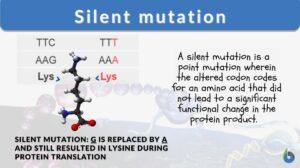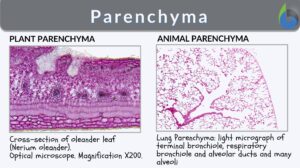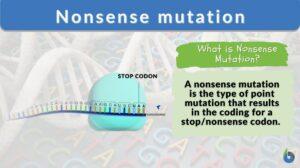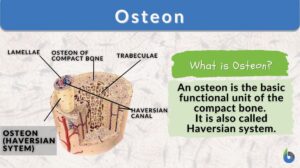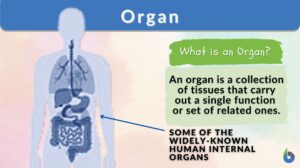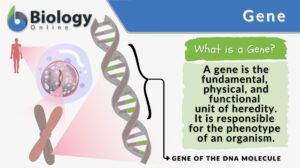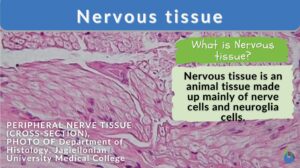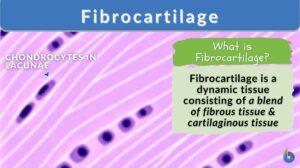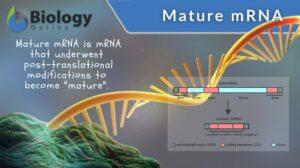Search Results for: functional
Functional residual capacity
Definition noun The volume of gas that stays in the lungs at resting expiratory level or at the end of a normal... Read More
Functional group
Functional group- a group of atoms within a molecule that interacts in predictable ways with other... Read More
Functional anatomy
Functional anatomy (Science: procedure) anatomy studied in its relation to function. Synonym: morphophysiology,... Read More
Silent mutation
A mutation is a change in the nucleotide sequence of a gene or a chromosome. When there is only one nucleotide involved, it... Read More
Parenchyma
Parenchyma Definition What does parenchyma mean? Let's define the word "parenchyma". Most of the functional tissues in... Read More
Nonsense mutation
A nonsense mutation is the type of point mutation that renders the translation process useless by coding for a stop/nonsense... Read More
Animal cell
An animal cell is the fundamental functional unit of life of animals. It is also the basic unit of reproduction. Animal... Read More
Hydrophilic
Hydrophilic Definition What does a hydrophile (or hydrophilic molecule) mean? If a molecule is “water-loving”, it is... Read More
Mutualistic symbiosis
Mutualistic Symbiosis Definition In order to understand what a mutualistic symbiotic relationship means, we will break down... Read More
Mitochondrion
Mitochondrion Definition What are mitochondria? The term “mitochondrion” comes from the two words of the Greek... Read More
Cis trans test
Cis trans test (Science: molecular biology) The complementation test with two or more interacting genes placed in cis and... Read More
Precursor mRNA
Definition noun plural: precursor mRNAs An immature or incompletely processed mRNA molecule in eukaryotes that needs to be... Read More
Nervous tissue
Nervous Tissue Definition Nerve cells (or neurons) and their associated cells, such as neuroglia cells, make up nervous... Read More
Cell theory
What Is Cell Theory? Biological cell theory explains the idea of organismal constitution, structure, and function. It... Read More
Zymogen granules
Definition noun The granules in the cytoplasm of secretory cells containing the zymogen Supplement Zymogen granules are... Read More
Fibrocartilage
What Is Fibrocartilage? Fibrocartilage is the strongest transitional connective tissue made up of collagen fibers and... Read More
Metabolism
Metabolism Definition What is metabolism in the body? Metabolism encompasses the various biochemical processes, reactions,... Read More
Muscular system
Muscular System Definition What is the muscular system? The muscular system is a system that includes muscle cells and... Read More
Theory of Neuroscience
Nezih OKTAR Journal of Neurological Sciences (Turkish) 2006, Volume 23, Number 3, Page(s) 155-158. An Open Access... Read More
Protein Activity and Cellular Metabolism
Protein Binding Sites The ability of various molecules and ions to bind to specific sites on the protein surface forms the... Read More
Lysosomal enzyme
Definition noun plural: lysosomal enzymes ly·so·somal en·zyme, ˈlaɪsəˌsoʊm əl ˈɛnzaɪm (biochemistry) Any of... Read More
Mature mRNA
Mature mRNA Definition Mature mRNA is the completely processed mRNA molecule in the cell of eukaryotes. The mRNA is a type... Read More
Fluid mosaic model
Fluid Mosaic Model Definition What is the fluid mosaic model? The fluid mosaic model is a three-dimensional representation... Read More
Basal layer
Definition noun (1) The innermost layer of the epidermis made up of basal or germinative cells capable of proliferating by... Read More
Catabolism
Catabolism Definition Catabolism is the branch of the metabolic process that breaks down complex, big molecules into... Read More

